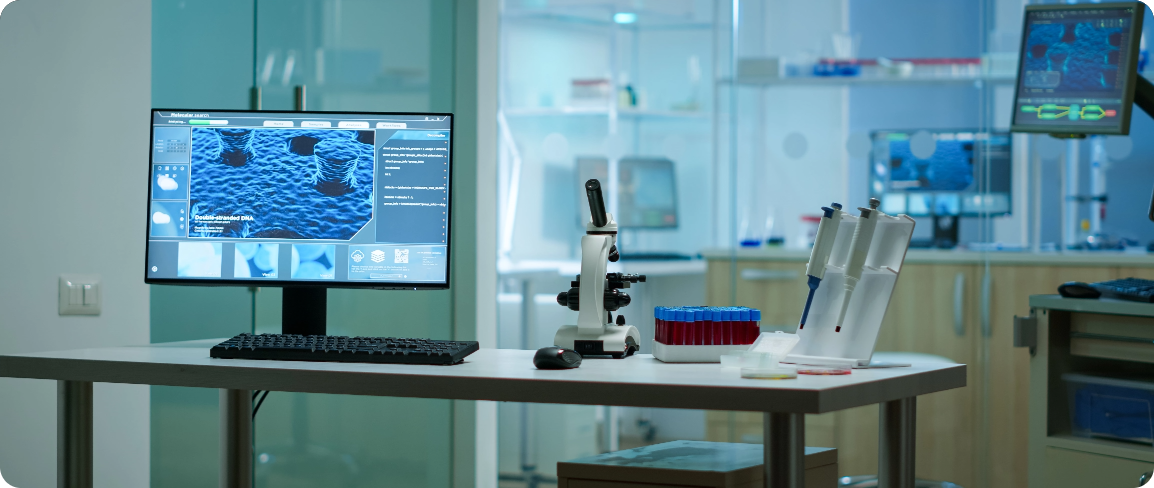
Applied Sciences & Humanities is well-equipped with the most defined and technically modern common laboratories to provide a superior level of practical education to its students. These laboratories are specifically designed with excellent facilities to meet the requirements of AICTE. PIET keeps on updating its laboratories by adding advanced instruments from time to time.

Chemistry of basic and applied nature is taught to the fresher students. The department has an advanced chemistry laboratory where experiments are conducted to strengthen basic concepts in Applied, organic, inorganic and physical chemistry. Students are familiarized with the various techniques and experimentation in analytical and environmental chemistry which includes study related to water chemistry, corrosion and fuel etc. The chemistry laboratory has various sophisticated instruments and facilities for all experiments. The environmental chemistry deals with the study of various chemical phenomena taking place in the environment which includes environmental chemistry in engineering, study related to water chemistry, corrosion and fuel etc. Applied Chemistry covers the good foundation for all B.Tech students; whereas organic chemistry forms the bases for Chemical and Textile engineering students. Besides basic undergraduate experimentation, facilities for environmental analysis particularly water analysis are available.

Realizing the importance of Professional Communication for engineering students we try to nurture the student’s personality and communication skills. To enhance the communication skills we have a communication lab fully equipped with Audio and Video Devices, electronic equipments and other communication gazettes very useful to the student. It has a GD table to have a real Group Discussion Session. These interactive features enable students to engross themselves in the language activities in their own style.
Thus our Communication Lab provides comprehensive placement assistance to the students from Resume writing to attending interviews. Moreover the video and audio content stored and supplemented with the software, help the students to improve their pronunciation & educate the learners in a very practical way. English faculties facilitate the language lab activities when students visit the lab. A lab demonstrator is available during the college hours to help the students in need of technical assistance.
HARDWARE
HP Desktop 2480, Dual Core based configuration, 320 GB HDD, 4GB RAM, DVD Combo Drive, 18.5″ TFT, HP Optical Mouse, Keyboard.
SOFTWARES
Study 1200 Language Lab Software, Sanako Pronounce, Everyday English, Soft Skills And Personality Development Program/Job Edge, Sky Pronunciation, Tense Tester, E-Learn To Speak Software, Clarity Software, Grammar Spell Checker Software

The department has two Physics laboratories (EMT Lab and SEMICONDUCTOR Physics Lab) with 16 experimental set – ups to focus on the fundamental Science in the Physical processes. We focus on imparting practical as well as theoretical knowledge of the subject which includes-the application of electricity and magnetism. The laboratory has sophisticated equipment for Hall Effect, e/m Helical methods, four Probe, Lenz’s law verification, Biot – Savart’s law verification, He-Ne laser and Stewart and Gee’s and many more experiments. Thus we impart all round knowledge of Physics at the fundamental level.

The computers are the backbone of education. To meet the requirements of the students of all the departments ASH offers computer laboratory for a practical exposure and its basic operations essential for the fresher students. The Laboratory is well equipped with latest computers and is used to handle the lab sessions.
Computer Practice Laboratory focuses on teaching the C programming language. The nature of C language is emphasized in the wide variety of programs. With the knowledge of C language the students are benefited with the means of writing efficient, maintainable, and portable code.

This lab is designed to provide students with hands-on experience in applying the fundamental theories of electrical and electronics engineering. In the electrical domain, students will practically verify key concepts of DC circuits, such as Kirchhoff’s Voltage Law (KVL) and Kirchhoff’s Current Law (KCL), along with important theorems like the Superposition Theorem, Thevenin’s Theorem, and Norton’s Theorem. For AC circuits, students will explore the phenomenon of resonance in both series and parallel RLC circuits. Additionally, they will perform experiments involving single-phase transformers, including direct load tests, open-circuit tests, and short-circuit tests. The lab also introduces students to the control of DC shunt motor speed through various methods. In the electronics domain, students will gain foundational knowledge by performing experiments such as identifying and testing electronic components, studying the V-I characteristics of PN junction and Zener diodes, and analyzing the input and output characteristics of a bipolar junction transistor (BJT) in both common-base and common-emitter configurations. This comprehensive lab bridges theoretical concepts with practical applications, fostering a deeper understanding of electrical and electronics engineering principles.